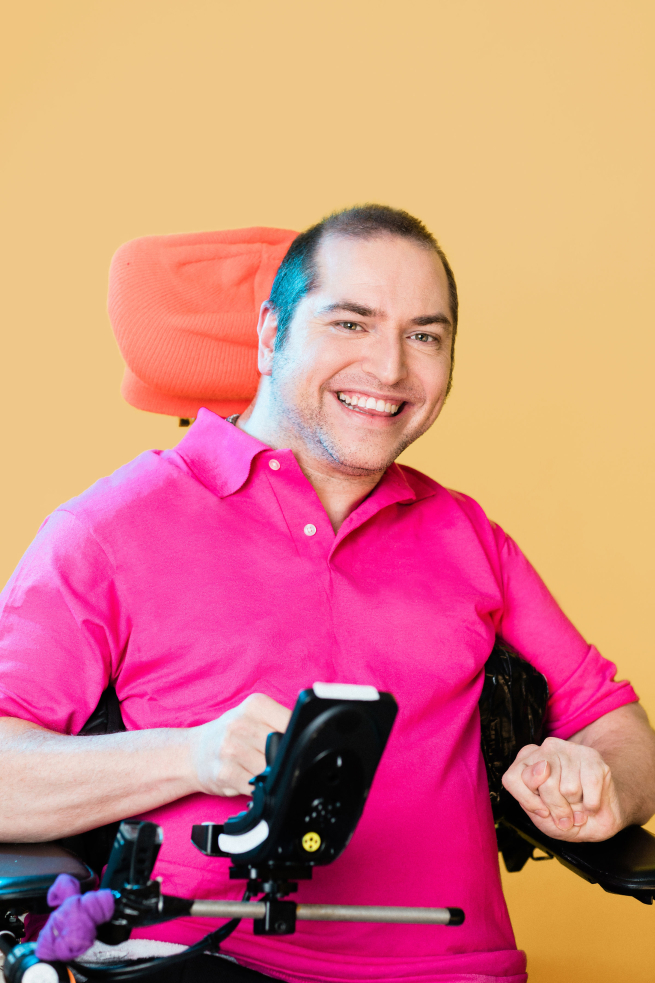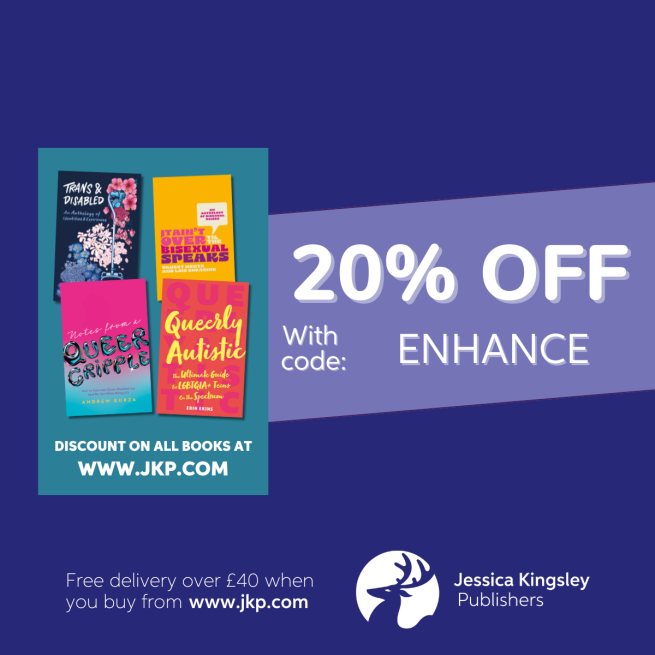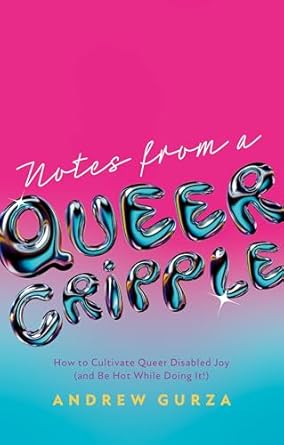
Marcia Brisset-Bailey is the author of the book, ‘Black, Brilliant Dyslexic‘, published by Jessica Kingsley Publishers.
She was named one of the Top 50 influential neurodivergent women in 2022 and was featured in Forbes. She is a powerful advocate for dyslexic people, in particular neurodivergent young people, empowering them to have confidence and good self-esteem.
Want to find a copy of Black, Brilliant and Dyslexic? Why not visit the Jessica Kingsley Publisher website and use our code, ENHANCE20, to get 20% off?
We sit down with Marcia to find out more about her, her dyslexia and what inspired her book.
Can you tell us about your personal journey with dyslexia and how it has shaped who you are today?
My journey with dyslexia has been deeply layered, shaped by the intersection of being a Black woman from a working-class background. I wasn’t formally diagnosed until I was 16 and in college, but I had always sensed from primary through secondary school that I processed information differently, even if I didn’t yet have the language to describe it.
Growing up, I often felt misunderstood, labelled, or overlooked. I loved learning and had a real passion for school, but it didn’t always love me back. That disconnect created a lot of emotional distress. I developed anxiety and became selectively mute for a time. The experience was traumatic, as on top of that, I felt as a black girl I had to work twice as hard, but it also planted the seeds of my resilience.
Over time, what was once seen as a barrier became a powerful part of my identity. My dyslexia, alongside my cultural heritage, has helped shape my creativity, my perspective, and my ability to think outside the box. It’s taught me how to navigate systems not built with me in mind, and ultimately how to advocate — not just for myself, but for others whose voices are too often unheard especially within marginalised communities.
What were some of the biggest challenges you faced growing up as a Black dyslexic woman?
The intersection of race, gender, and neurodiversity brought a unique set of challenges. As a young Black girl in the education system, my struggles were often misread as slow, just shy and lacking confidence and self-esteem. I didn’t see myself reflected in books or conversations that felt positive about learning differences. That invisibility was tough — it made me question my abilities. But it also fuelled a determination to rewrite the narrative when my school teacher told my parents I would never academically achieve, I want to ensure others do not feel isolated.
What inspired you to create this collection of stories from the Black dyslexic community?
Black, Brilliant and Dyslexic was born out of both frustration and hope. I wanted to create the book I wish I had growing up — a collection that affirms our voices, highlights our strengths, and acknowledges our struggles. Representation matters deeply. When we see ourselves reflected in stories, it opens up a world of possibility. I knew there were powerful voices out there — they just needed a platform.
How did you go about finding and connecting with the contributors to the book?
It was a journey of building trust and community. Some contributors were people I’d followed or connected with through social media or advocacy work. Others were introduced through networks of educators, creatives, and change-makers. Each person brought their truth, courage, and brilliance to the table. I’m so proud of the honesty and vulnerability in these stories.
Were there any stories in the book that particularly surprised, moved, or resonated with you?
Every single story moved me in some way. But I was particularly struck by those who had to navigate silence — those who were undiagnosed for years until they went to university (what happens if you do not go to university, what then?) or had to hide their challenges just to survive. The strength and perseverance in those stories reminded me why this work is so necessary. There’s still so much stigma to break down, but these stories are a step toward healing acceptance and empowerment.
What advice would you give to young Black dyslexic individuals who are struggling to find their voice or feel seen?
You are not alone, find community groups or hubs you can find to feel supported in the way you think, learning, and see the world is valid and valuable. Don’t let systems that weren’t designed with you in mind define your worth. Find your voice, ask for help, and find your tribe — people who see you and support you. And remember, your story matters. We need your voice in the room, at the table, and in the world.
I am no longer playing small and unapologetically me, a black dyslexic woman.
Want to find a copy of Black, Brilliant and Dyslexic? Why not visit the Jessica Kingsley Publisher website and use our code, ENHANCE20, to get 20% off?
Want to read more about disabled people and their experiences? Visit our dedicated blog page for more stories!












